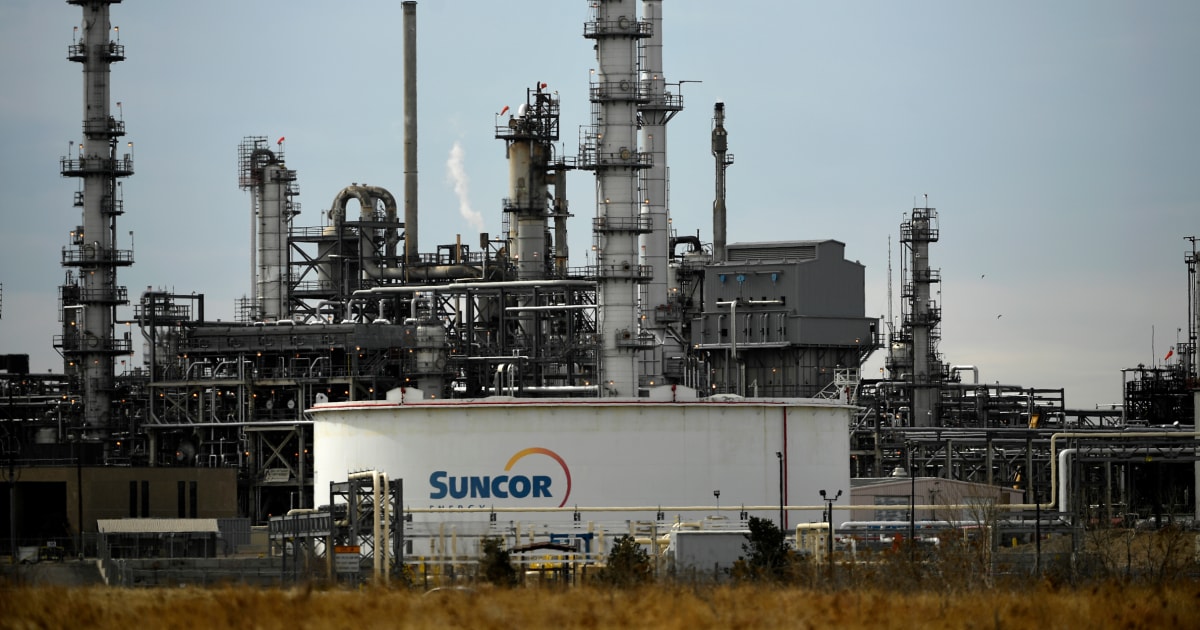DENVER — The Environmental Protection Agency is investigating whether Colorado’s regulation on air pollution from industrial facilities discriminates against Hispanic residents and other racial minorities, according to a letter released Wednesday.
That’s a level of scrutiny long sought by Lucy Molina, whose daughter goes to school near Colorado’s only oil refinery. Three years ago, Molina had just gotten out of it when she noticed a layer of ash on her Nissan Altima that she wiped off on her fingers. She then received a message that her daughter’s school was closed and she panicked. She later learned that the refinery had failed and spewed a clay-like material into the air. She had heard of lockdowns for shootings, but never for contamination.
Since then, he has pushed for community air control and stronger protections, but it seems to be too late. She has lived here for 30 years and her children are young adults.
“If we had known” years ago, he said. «We would have moved.»
Proponents say Suncor’s refinery fails too often, increasing emissions. They say Colorado rarely denies permits to polluters, even in areas where harmful ozone already exceeds federal standards.
Federal investigators said in the letter that they will look into state oversight of Colorado’s biggest polluters, such as the Suncor oil refinery in north Denver, where Molina lives, and whether the effect of that pollution on residents is discriminatory.
Suncor did not respond to a request for comment.
EPA initiated its investigation under Title VI of the Civil Rights Law of 1964. It has been going on since March but went little noticed until Wednesday’s letter, which explains its scope. The Act allows EPA to negotiate agreements with states to promote equity. the Biden administration has intensified its application of environmental discrimination.
Colorado officials said they welcome the EPA review, increased community involvement and are reviewing their permitting policies to ensure they focus on environmental justice.
“We have always prioritized the health and well-being of all Coloradans, regardless of ZIP code, but we know we have even more to do,” Trisha Oeth, our Director of Health and Environmental Protection said in a statement.
But the EPA has found those priorities to be lacking at times.
The agency scrutinized the state’s handling of Suncor. Colorado’s only oil refinery is approximately 90 years old and is a major emitter of greenhouse gases in the state.
In March, the EPA challenged a key air permit for the facility that was still being reviewed by state regulators 10 years after its original expiration date. The agency raised «significant environmental justice concerns» and said the public was not given sufficient opportunity to weigh in. The EPA did not object when the state issued a revised permit.
In July, the agency also said the state had issued permits for a mine, oil and gas wells and other small pollutants even though they could contribute to violations of federal air quality standards. Colorado said it would improve its reviews, but declined to review its permit decisions.
However, there are some signs that the agency chose Colorado because it could prove to be a willing partner.
“Colorado has been one of the states that has been a leader in addressing environmental justice in the legislature,” said KC Becker, head of the EPA region that includes Colorado and a former state legislative leader.
Colorado has strengthened air monitoring requirements. Increased funding for air permit reviews. The state’s greenhouse gas reduction plan aims to reduce pollution in overburdened areas. He also worked with the EPA to ensure that inspections are focused on the most contaminated areas and when companies settle wrongdoing, they pay for projects that benefit communities.
These changes «have given EPA an opportunity to say, ‘Well, if that’s what you’re committed to, then let’s really try this out, let’s see how it proves itself here,'» said Jeremy Nichols, head of climate programs and energy in WildEarth. Guardians.
Nichols said that Colorado is too respectful of the industry. He wants to see the state deny permits much more often.
Ian Coghill, an Earthjustice attorney challenging Suncor’s permit, says the tug-of-war between the EPA and the state has not produced major improvements. The revisions to Suncor’s permit, he said, «didn’t change much.»
He is hopeful that the civil rights investigation will force the state to make changes and detail the cumulative effect of the industry’s pollution on north Denver residents.
“I am definitely an optimist,” he said.

